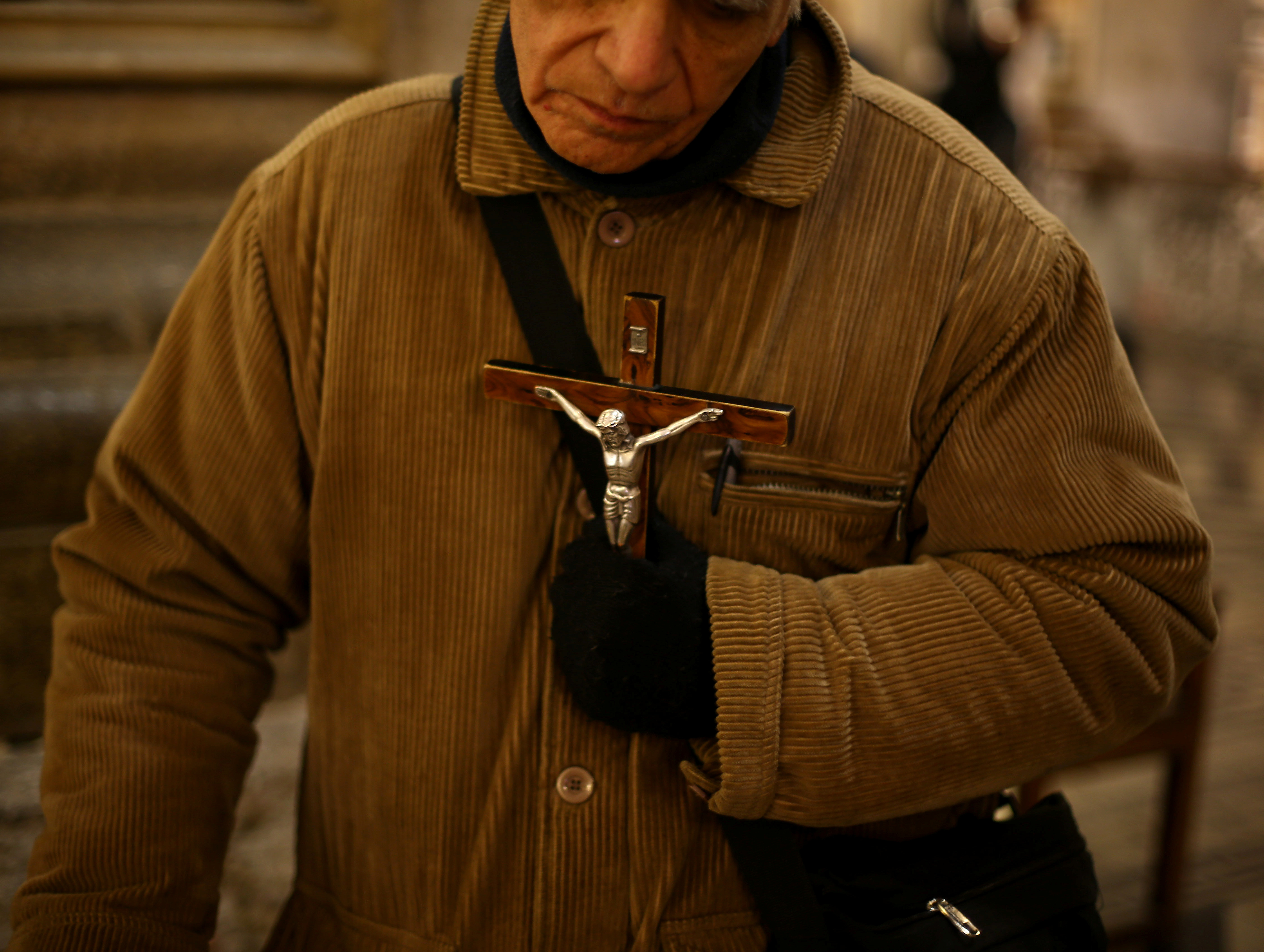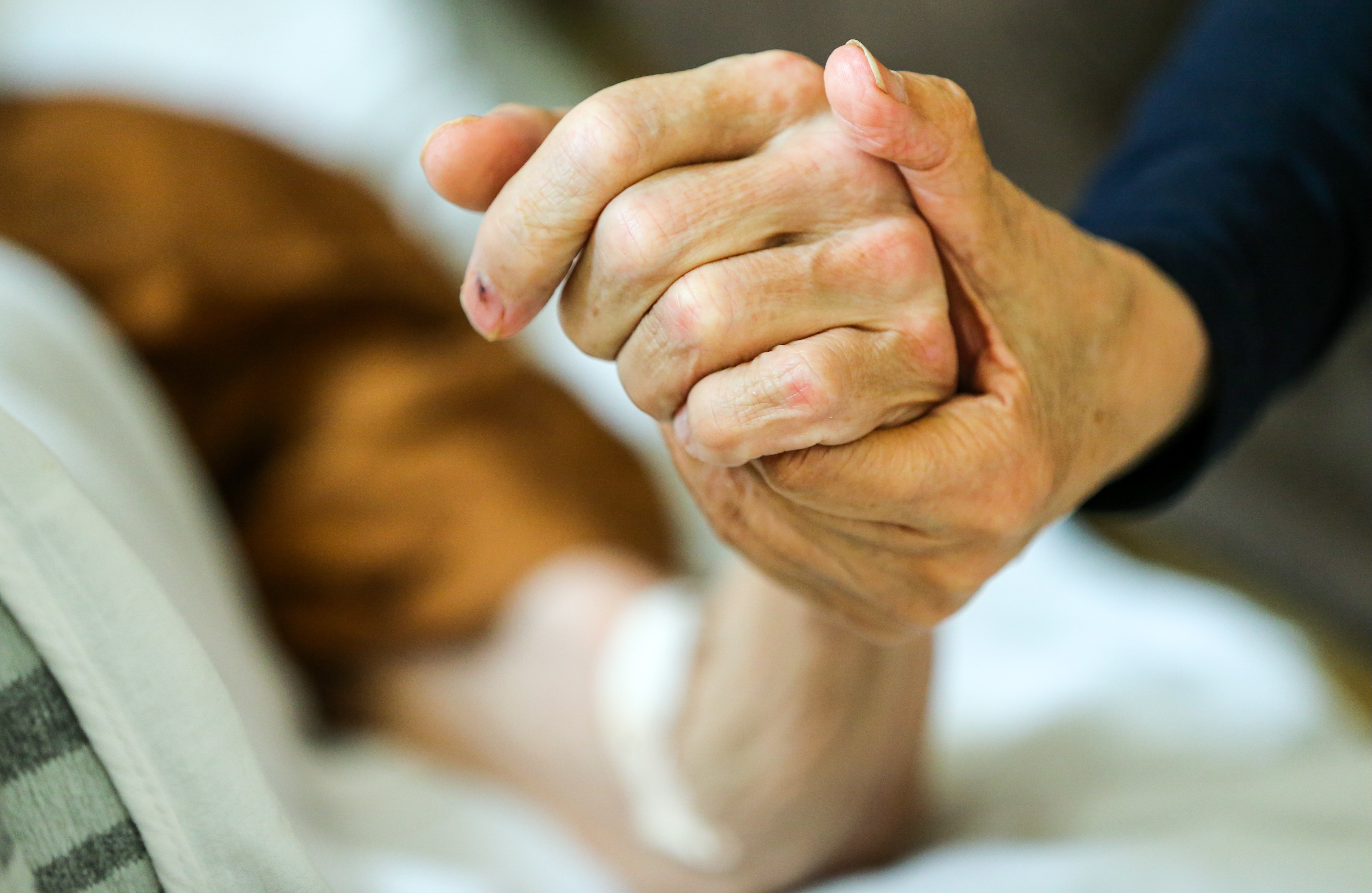St Mary’s University in Twickenham has launched a new guide to deathbed etiquette that is aimed at helping people support a loved one as they die.
The guide, produced by The Art of Dying Well, a project that is supported by the university, draws on the experiences of hospital chaplains, palliative care consultants, nurses and friends and relatives.
“Deathbed Etiquette”, which is available online, says that good accompaniment means being attentive, perhaps by holding the dying person’s hand, and being aware of important last conversations, like saying “thank you” or “I love you”.
It also suggests playing gentle background music or creating some personal space around a loved one’s bed, particularly if they are in hospital. Practical tips, such as reminding the person sitting to take regular breaks to drink and eat and to set up an email or WhatsApp group to keep family and friends updated.
It also touches on common but unexpected aspects of dying – that people sometimes “choose” to die when their loved ones are out of the room; that their breathing pattern might change or sound laboured; or that they might need “permission” to let go.
Jo Elverson, a consultant in palliative medicine at St Oswald’s Hospice, Newcastle has found that those closest to the dying person are best placed to help them to die peacefully.
Elverson encourages families at the bedside to follow their instincts: “Sometimes, they need confidence, permission if you like, to do what they believe is the right thing.”
She tells the story of a 17 year-old patient who was dying of sarcoma cancer at home and becoming very breathless and distressed. She realised this was because he was aware of his father’s deep distress. She and the community nurse asked the father if he could reassure his son.
“Dad was able to say: ‘I’m going to be all right. I’ve got your mum, I’ve got your sister. I’m going to be OK.’ And this did more than any medicine for his son so he was able to relax and rest. He died the next day,” Elverson said.
Amy Gadoud, a palliative care consultant at Trinity Hospice in Blackpool, said she hoped the guide communicated “that dying is not a clinical event. It is a normal event in someone’s life”.
The launch of the guide coincides with a Onepoll survey commissioned by the Art of Dying Well and St Mary’s University that asked 2,000 people across the UK whether they were prepared to be at the bedside of a loved one as they were dying. They were requested to rate their responses from one to 10, one being totally unprepared and 10 totally prepared.
Sixteen per cent said they were totally prepared, while one in 10 were totally unprepared.
By rolling together responses one to five and five to 10, it emerged that almost half of those polled – 48 per cent – felt prepared to some extent while 39 per cent veered towards feeling unprepared.
Women outnumbered men in their responses to the two most extreme positions. Almost twice as many women as men said they were totally prepared – 20 per cent of women and just 11 per cent of men. More women than men also considered themselves to be totally unprepared – 12 per cent of women and 8 per cent of men.
Older respondents said they felt better prepared to sit by the bedside. Almost a quarter of people aged over 55 (23 per cent) said they were totally prepared, while only 12 per cent for those aged 18 to 34 felt this way. This finding is in line with the experience of our experts who have found that the ability to cope with death and dying increases with age.
Amy Gadoud says: “I’ve seen a grandfather who is terminally ill supporting his grandchildren who are finding it all very difficult. Once a person is in their eighties, they’re at the stage of losing friends and it is becoming familiar. The young don’t usually have that experience so the difference is understandable.”
The guide is available online at www.artofdyingwell.org



 Loading ...
Loading ...